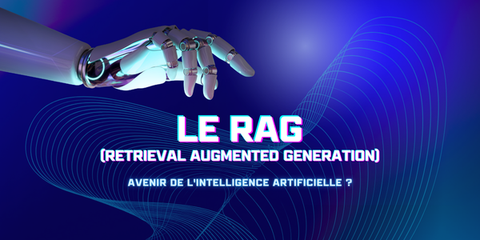Artificial intelligence (AI) is playing a crucial role in the evolution of CRM tools and represents not only the future of these systems but also a key driver for improving user adoption and operational efficiency.
The benefits of AI-powered CRM
Task automation
AI enables the automation of many repetitive tasks, such as handling customer inquiries through chatbots or analyzing emails. These chatbots provide 24/7 assistance and enhance customer service efficiency by managing common queries, freeing human agents to focus on more complex issues.
Data optimization
AI helps maintain clean and accurate CRM data by eliminating duplicates, correcting entry errors, and filling in missing information from external sources. This ensures that sales and marketing teams always have reliable, up-to-date information. AI can also automatically classify and organize incoming data (emails, customer messages, etc.), saving companies time on tedious administrative tasks.
Improved sales forecasting
Through predictive analytics, AI-powered CRM systems can analyze historical data to forecast future sales and identify the most promising opportunities. This enables businesses to allocate resources more effectively and optimize their sales strategies.
Enhanced personalization
AI analyzes customer behavior and interactions, grouping them into specific segments based on predictive criteria (such as customers most likely to respond to a marketing campaign). This predictive segmentation allows for more targeted marketing efforts and personalized messaging, improving the customer experience and boosting loyalty.
Sentiment analysis
AI assists in interpreting the tone of customer interactions through sentiment analysis, allowing businesses to understand customer emotions and adjust marketing strategies accordingly. This is especially useful for identifying at-risk customers and launching targeted retention campaigns.
Marketing campaign optimization
AI can test multiple variations of a campaign (emails, ads, etc.) and automatically optimize performance by adjusting parameters in real time based on results. It can also provide automated recommendations for improving future campaigns, drawing insights from previous CRM data, such as preferred communication channels or optimal send times for offers.
Performance enhancement
AI-powered CRM systems deliver detailed performance insights for sales and marketing teams, helping identify areas for improvement and enabling real-time process optimization.
In summary, AI in CRM goes beyond automation; it empowers better decision-making, optimizes customer interactions, and enhances personalization.
CRM platforms already leveraging AI for better performance
Artificial intelligence is becoming a true competitive advantage for brands that integrate it into their CRM systems. With machine learning algorithms in place, customer experiences are increasingly hyper-targeted, and personalized suggestions are delivered in real time.
HubSpot
HubSpot incorporates AI tools like ChatSpot and Content Assistant to automate repetitive tasks such as email creation, report generation, and campaign optimization. By automating these functions, HubSpot enables users to save time and focus on more strategic initiatives.
The AI-powered Content Assistant automatically generates suggestions for marketing campaigns and blog posts, helping businesses produce content quickly and efficiently.
ChatSpot supports lead management, report generation, and customer communication, reducing the workload for sales and marketing teams while boosting overall efficiency.
Salesforce
Salesforce’s use of AI, through its Einstein AI platform, offers a significant competitive edge.
Einstein Email Insights helps sales teams respond more quickly to high-priority opportunities by ranking emails based on their importance or likelihood to result in a sale.
Einstein Bots automatically engage with customers to answer questions while escalating complex cases to human agents, thereby improving customer service efficiency.
Zoho
Zia, the AI-powered assistant integrated into Zoho CRM, automates key tasks that help businesses increase productivity. Zia uses machine learning to analyze past trends and predict future customer behaviors, allowing businesses to adjust strategies proactively and respond more effectively to market changes.
Sales Forecasting improves sales prediction accuracy, facilitating better resource and target management.
Sentiment Analysis helps interpret the emotions behind customer messages, enabling teams to provide more empathetic and personalized service.
Conclusion
Automation, personalization, predictive analytics, understanding customer sentiment, and even augmented reality integration in customer interactions… The future of CRM combined with AI promises greater efficiency, more personalized engagement, and smarter data management. Integrating AI into CRM systems will not only enable businesses to better understand their customers but also to create smoother, more engaging experiences—an essential advantage for staying competitive in the years ahead.
Want to learn more about how we support businesses in selecting SaaS tools to better manage their data?








